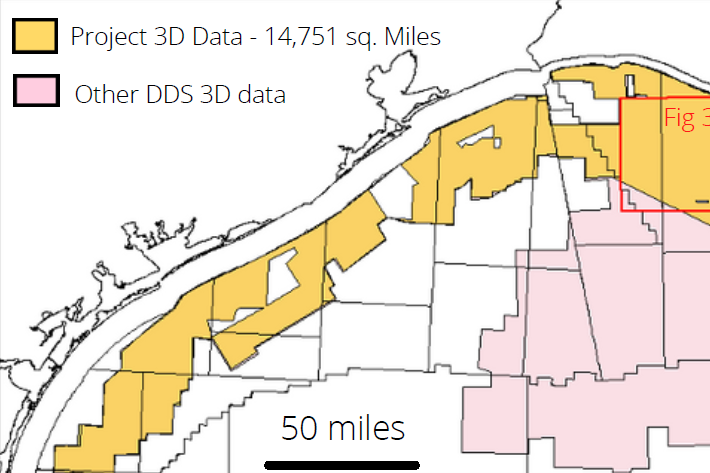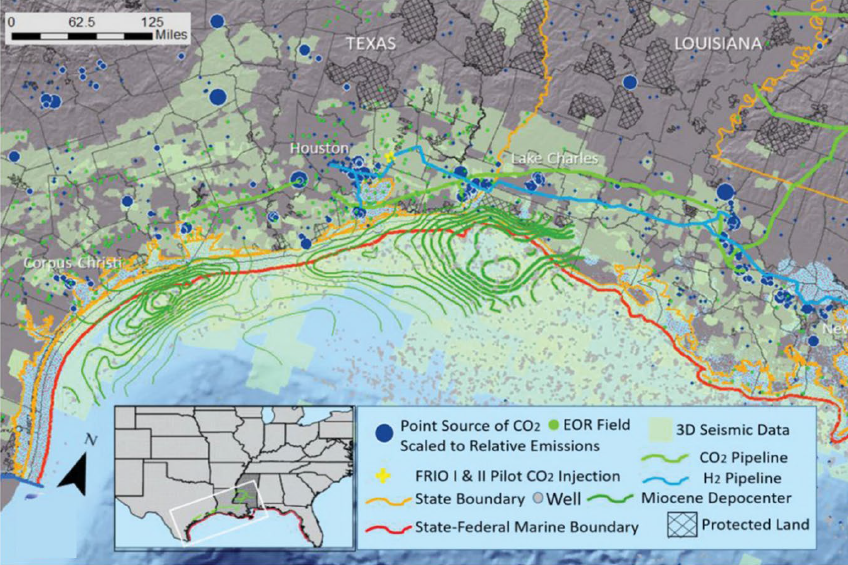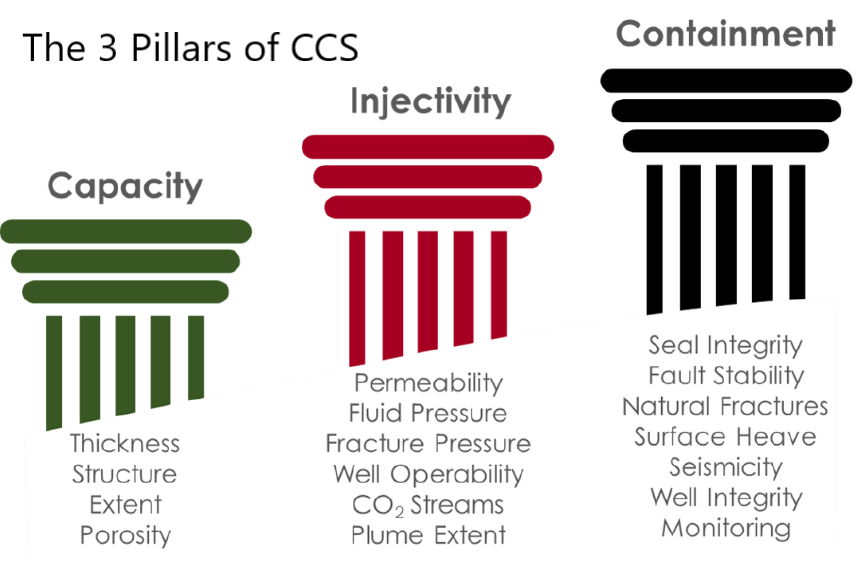Carbon Capture Utilization and Storage (CCUS)
Companies across all industries are becoming increasingly aware of the need to reduce their carbon footprint and reduce the emission of greenhouse gases (GHG). Subsurface geologic CO2 sequestration provides a means to safely store captured CO2 in depleted oil fields or subsurface environments that are identified as suitable storage facilities.
We can provide geoscience and engineering experts to handle all technical aspects of the CCUS storage project workflow including subsurface storage site selection, injectivity, seal integrity, capacity, and modeling. Additionally, our consultants can audit and certify ongoing CO2 sequestration projects.
- Carry out a 3rd party review of the technical work performed by the client’s subsurface teams to assure its accuracy.
- Complete a detailed QAQC of well log analysis, subsurface mapping techniques and geologic model building workflows.
- Provide final certification and sign off that the work was sufficient to meet and/or exceed the Monitoring, Reporting and Verification Plan (MRV Plan) regulatory requirements.
We have engaged with the following organizations to jointly provide opportunities in CCUS:
Dynamic Data Services
Dynamic Data Services (DDS) offers screening of potential offshore carbon storage in the Gulf of Mexico. The project will deliver a geological and commercial ranking of potential carbon storage sites in the federal waters of Texas and Louisiana.
The analysis will be based on detailed structural and stratigraphic interpretation of regional 3D seismic within 50 miles of the coastline and will incorporate economic criteria that rank potential sites on size and cost of storage.

Project Deliverables:
- Immediate access to 15,000 square miles of 3D seismic volume.
- An ongoing regional geologic interpretation.
- Engineering and commercial sensitivities to lowest cost per ton storage.
- Ranking of the top potential storage sites on pore volume, seal risk, injectivity, and cost.
Energy Fuse Group
The approach utilizes a holistic, integrated geo-technical, petroleum system based and field development commercial framework. We have accounted for the entire value chain and system from emissions to subsurface to the additional system components of pipelines and wells.

Study Deliverables:
- The study’s content, analysis, synthesis and results are continuously updated with new and emerging industry developments during this energy transition.
- A range of conceptual field development scenarios are provided across field size, distance from shore, well requirements, development timing, reservoir conditions and other elements.
- Available for deployment in your organization with a rapid multi-week delivery schedule.
- Communication of the study results and its effective utilization incorporates a full report, workshops and briefings.
Subsurface Alliance

Technical Services:
- Faults and Fractures
Characterize faults and fractures to assess the likelihood of reactivation or propagation of fractures.
- Geomechanics
Provide a full subsurface stress and pore pressure (1D or 3D) characterization to assess integrity of the confining zone.
- Well Operability Limits
Assist in calculating the confining zone fracture pressure and assess the physical-chemical characteristics of the injection / sealing zones and its fluids.
- Seal Integrity
Assess seal integrity to evaluate the likelihood of fluid migrations across or along faults.
- Storage Capacity
Can assist in estimating storage and flow capacity of the injection zone using reservoir simulations coupled with geomechanics.
SCA offers the following training courses in both live online and in-person formats:







